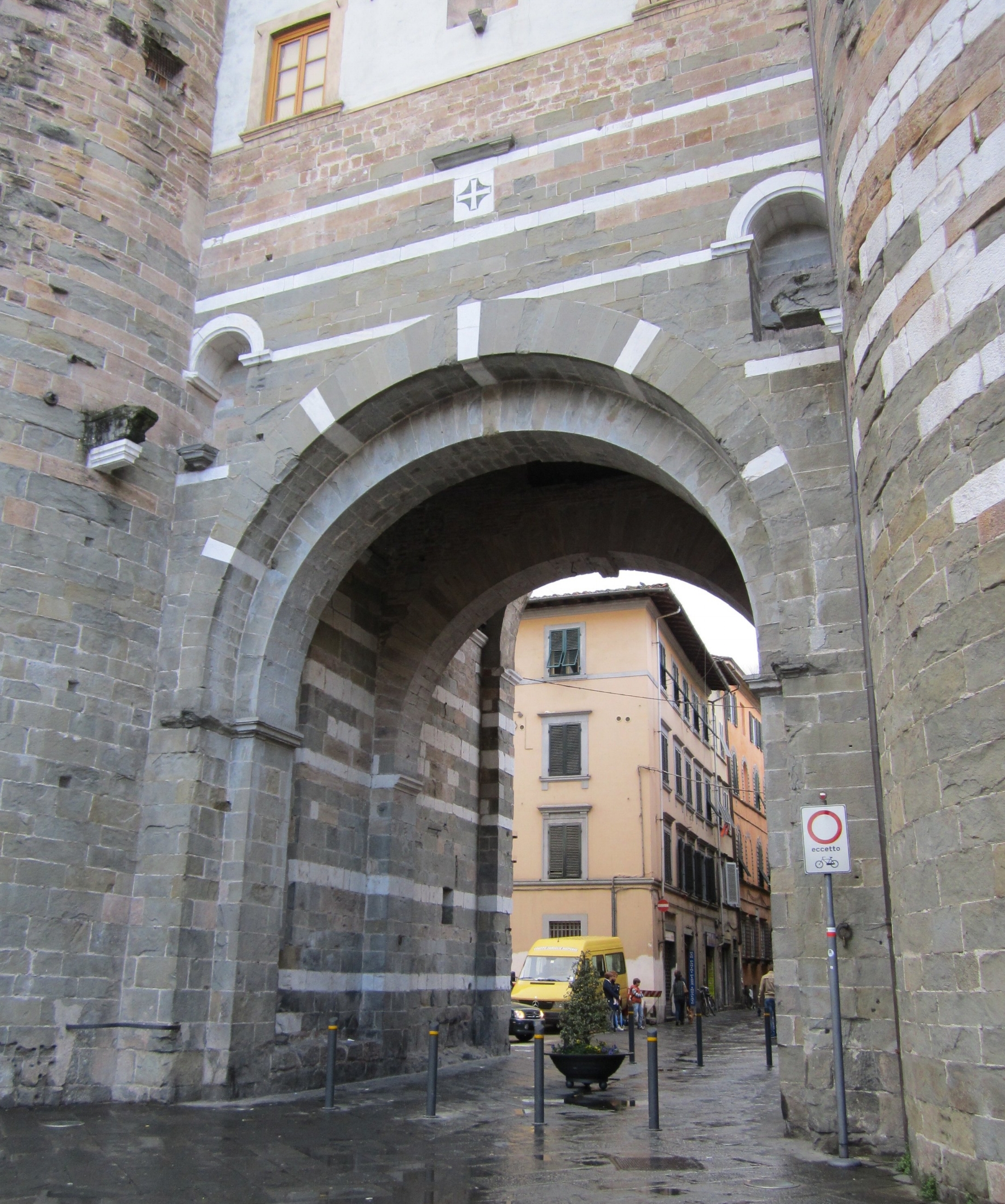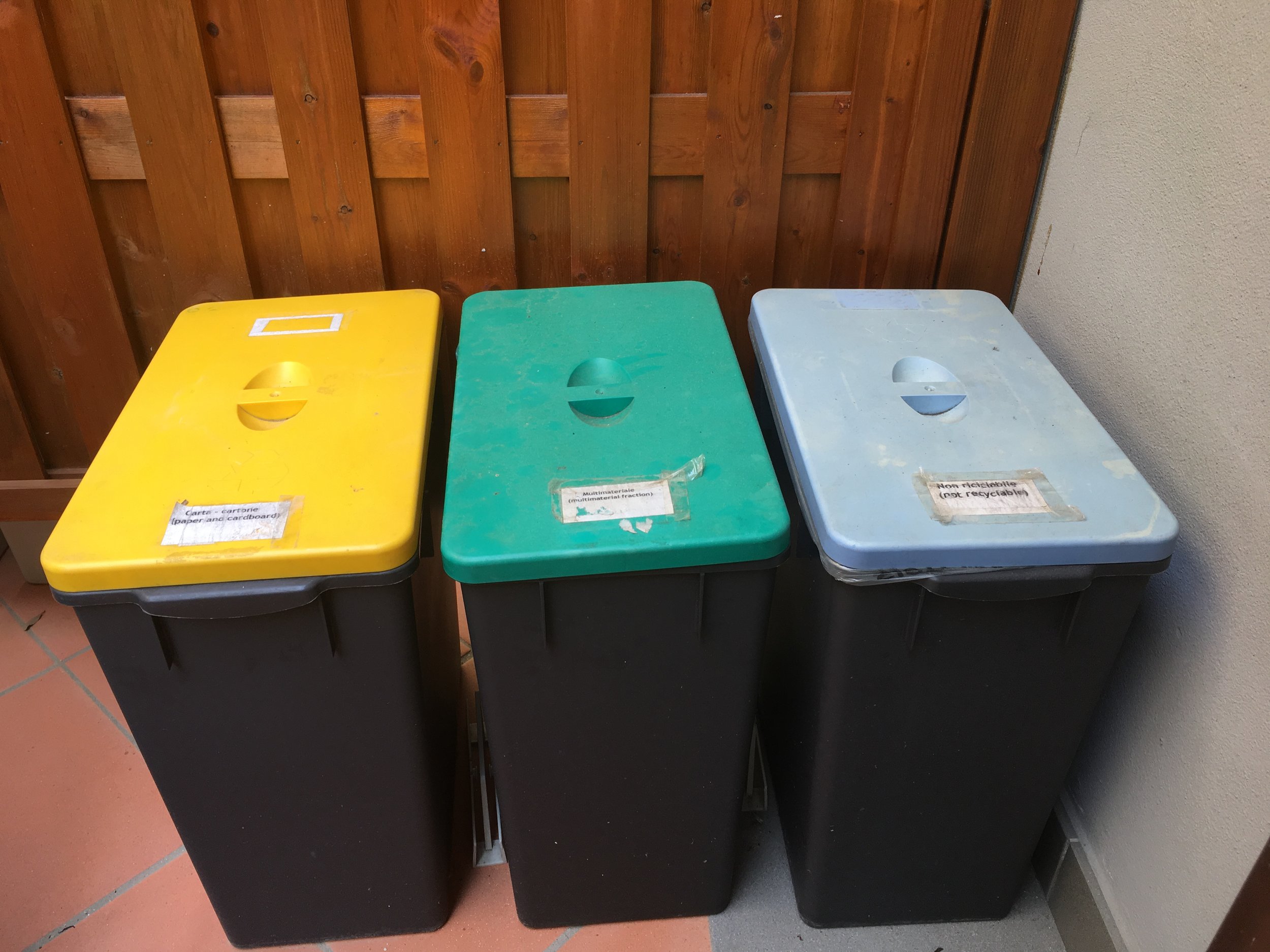Talking Trash, Italian Style
The Italian word spazzatura sounds so much nicer than the English word "trash," which is perhaps just due to the magic of the Italian language. But trash is serious business in Italy and, when renting an apartment here, it's important to understand the Sistema Ambiente (which regulates and collects trash). To complicate matters, the rules and practices vary from region to region and town to town - so the rules in Livorno are likely to be different from the rules in Lucca. It's important to look for an explanation of local requirements in any rental apartment.
Keeping these narrow streets trash free is no small task.
The instructions should include how to sort and bag the trash, where to place the trash for pickup, and the days of trash collection. Depending on location, there may be door-to-door pick-up (porta a porta) with specific items collected on assigned days (i.e., paper goods on Tuesdays, organics on Wednesdays) or there may be central pickup from an isola ecologica (loose translation - recycling area). These are found in some neighborhoods and have larger bins (cassonetti) for specific types of trash. In either case, the sorting is key!
Why all the sorting? Well, because Italy has a goal of "rifiuti zero" (no waste). That's a lofty goal; some cities are making huge strides in that direction (Cappanori is a leader, Lucca is on its way), while other cities are still working to adapt to the new strategies. The goal is to recycle everything possible (glass, plastic, paper, aluminum cans) and to compost organic waste. It takes some extra thought and effort to sort and recycle, but it's the right thing to do for the environment!
Here is how it works in Lucca's historic central district. The area inside the walls is divided into two zones, A and B, roughly along Via Fillungo, the main shopping street. The rules are the same in each, but the collection days for some types of trash (papers and boxes) are different so it's important to know in which zone a particular apartment lies. My apartment this spring was in Zone B, the eastern half of the city and had porta a porta (door to door) collection.
On trash days, these bags line the streets. Luckily the trash trucks make frequent rounds so the streets are cleared relatively quickly.
The schedule for trash pickup, with specific types of trash collected on certain days.
All trash is sorted into four types - most apartments have separate bins for each.
Separate bins, one each for paper, mixed materials, and non-recyclables on the patio of my apartment. The fourth bin, for organics or compostables, was in my kitchen.
Color coded bags for recycling.
Carta (paper) is the first of the four types of trash. It includes newspapers, boxes and paper packages (i.e., pasta boxes and paper shopping bags). However, not all paper goes in Carta - used napkins and paper towels go with compostables and plastic-coated papers in non-recyclables. If in doubt, most apartments have a booklet that lists how to sort every type of trash imaginable. Carta can be put out in paper shopping bags, boxes, or clear/white recyclable bags.
Next is multimateriale (mixed materials), which includes glass bottles, tin cans, plastic food containers (be sure to rinse first), aluminum foil, etc. Multimateriale goes in the green bag.
Third is organico. In-sink garbage disposals are uncommon in Italy, so food scraps are a large part of kitchen trash. Collecting these scraps (egg shells, fruit rinds, meat bones, teabags, coffee grounds, etc.) helps to reduce the amount of non-recyclable waste. Used paper towels, napkins, and garden clippings also go in organic waste - all will eventually become compost. Most kitchens have a small container for kitchen waste - be sure to empty this often as it can get smelly in a hurry!
Last is non-riciclabile (non-recyclable) and this is ideally the smallest of the four types of garbage. It includes anything that has no recycle value - toothpaste containers, baby diapers, plastic cutlery, sponges, etc. These go in a gray bag for pickup.
These small trucks make the rounds and quickly pick up those street side bags of trash.
The next step is consulting the schedule of pickup. I'm writing this on a Wednesday, organico day for me. Thursday I can put out my carta and non-riciclabile. Each is left on the street outside my apartment, in its color-coded bag, between 6 and 9:30 am. Small garbage trucks collect the trash bags left along the street. Note that trash bags should never be put out the night before pickup as stray dogs and cats tend to find them and scatter the contents, making a huge mess of the streets.
In the apartment I rented last fall, things were a bit different. First, I was in Zone A so the pickup days for paper trash were different. Also, I had a resident's card, which opened the neighborhood recycle center bins, so I could choose to deposit any type of sorted trash on any day. I found this to be the easiest way to take out the trash.
An isola ecologica, or centralized trash collection station, available to area residents with a key card, which opens the bins.
Trash - not the most picturesque Italian subject - but important. Not following the rules can get you (or your landlord) a big fine. So be a good visitor and handle your trash like a local!
-post by JMB
I love red vespas. Much prettier than trash!
For further information, including the most current schedule and instructions in English: www.sistemaambientelucca.it







